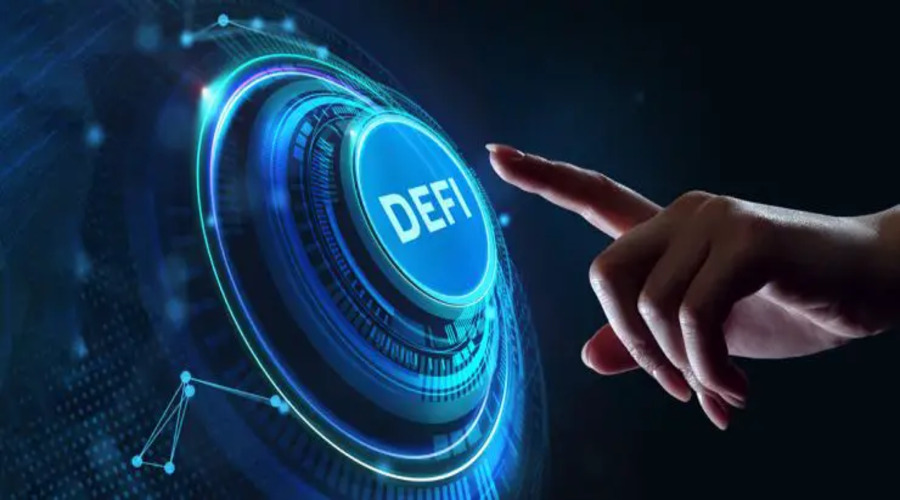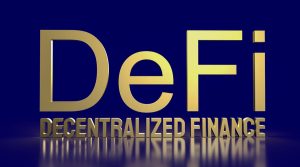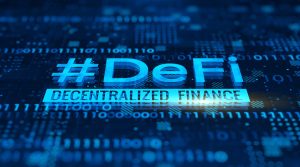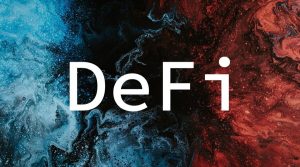The Role of Governance Tokens in DeFi Protocols

The Role of Governance Tokens in DeFi Protocols
As Decentralized Finance (DeFi) becomes increasingly popular, the role of governance tokens in the DeFi ecosystem is gaining importance. Governance tokens provide holders with voting rights on key decisions affecting the protocol, allowing them to have a say in the development and direction of the protocol. In this article, we will explore the role of governance tokens in DeFi protocols, their benefits, and how they are used to ensure transparency and community involvement.
What are Governance Tokens?
Governance tokens are digital tokens that represent ownership in a particular DeFi protocol. Holders of governance tokens have the right to participate in the decision-making process of the protocol by voting on proposals, making them a key component of decentralized governance. Governance tokens are often distributed through an Initial Coin Offering (ICO) or airdropped to users of the protocol.
Benefits of Governance Tokens in DeFi Protocols
Decentralized Decision Making
Governance tokens enable decentralized decision-making by giving voting rights to holders. The community can vote on proposals such as protocol upgrades, changes to fees, and the addition of new features. This decentralized decision-making process ensures that the protocol remains transparent, open, and responsive to the needs of its users.
Community Engagement
Governance tokens encourage community engagement by providing incentives for users to participate in the governance process. This engagement fosters a sense of ownership and responsibility among users, leading to a more active and dedicated community.
Security
Governance tokens enhance the security of DeFi protocols by creating a system of checks and balances. Holders of governance tokens can vote to reject proposals that are not in the best interest of the protocol or its users, thus preventing any malicious activity or harmful changes.
How Governance Tokens Work
Governance tokens work by allowing holders to vote on proposals put forth by the protocol’s developers or community members. These proposals can range from minor changes, such as adjusting the fee structure, to major upgrades or changes in protocol functionality.
In order for a proposal to be approved, a quorum of governance token holders must participate in the vote, and a majority of those who vote must approve the proposal. This ensures that proposals are only passed when there is significant community support, making the decision-making process more transparent and democratic.
Examples of Governance Tokens in DeFi Protocols
There are several examples of governance tokens being used in DeFi protocols. One of the most well-known is the governance token for Uniswap, UNI. Holders of UNI have the ability to vote on proposals related to the Uniswap protocol, including changes to fees and the addition of new trading pairs.
Another example is the governance token for Compound, COMP. Holders of COMP can vote on proposals related to the Compound protocol, including adjusting interest rates and changing the collateral requirements for borrowing.
Challenges of Governance Tokens
While governance tokens provide many benefits to DeFi protocols, they also come with some challenges. One challenge is ensuring that the decision-making process is not dominated by a small group of token holders, known as a “whale.” This can lead to centralization and may not accurately reflect the interests of the broader community.
Another challenge is ensuring that proposals are well-informed and thoroughly vetted before being put to a vote. Without proper due diligence, proposals may be poorly thought out or may not align with the long-term interests of the protocol.
Governance Token Design
The design of governance tokens is critical to their success. Some key considerations include the distribution mechanism, the voting system, and the role of the token in the protocol’s ecosystem.
One common design is to distribute governance tokens to early users of the protocol, such as liquidity providers. This ensures that those who have a vested interest in the protocol’s success are the ones who hold the most governance power.
Another design consideration is the voting system. Some protocols use a simple majority vote, while others require a supermajority or a threshold quorum. The voting system should be designed to ensure that proposals are only passed when there is significant community support.
Governance Tokens and Regulatory Considerations
As DeFi continues to grow and attract more users and capital, regulatory scrutiny is increasing. Governance tokens may fall under securities regulations, which could have significant implications for their use and distribution. It is important for DeFi protocols to consider regulatory compliance when designing and distributing governance tokens.
Future of Governance Tokens
Governance tokens are likely to continue playing a critical role in the development and governance of DeFi protocols. As the industry evolves and matures, we may see new governance token designs and models emerge. Additionally, the regulatory landscape is likely to evolve, which could impact the use and distribution of governance tokens.
By understanding the benefits, challenges, and design considerations of governance tokens, DeFi protocols can ensure that they are using this powerful tool responsibly and effectively.
Conclusion
Governance tokens play a crucial role in the decentralized ecosystem of DeFi protocols. They enable decentralized decision-making, community engagement, and security, while providing incentives for users to participate in the governance process. While there are potential challenges with governance tokens, their benefits outweigh the risks, and they have the potential to transform the financial industry as we know it.
FAQs
- What are some popular governance tokens in DeFi protocols?
Some popular governance tokens include UNI (Uniswap), COMP (Compound), and AAVE (Aave).
- Can governance tokens be used for other purposes besides governance?
Yes, governance tokens can be used for staking, liquidity provision, and trading on decentralized exchanges.
- How are governance tokens distributed?
Governance tokens are usually distributed to early adopters, investors, or users who contribute to the growth and development of the protocol.
- What happens if a holder of governance tokens decides to sell them?
If a holder of governance tokens decides to sell them, they can trade them on decentralized exchanges, potentially impacting the value of the tokens.
- Are governance tokens a good investment opportunity?
Like any investment, governance tokens carry risks, and their value can be volatile. However, they can also provide potential rewards for those willing to participate in the governance process of a DeFi protocol.








